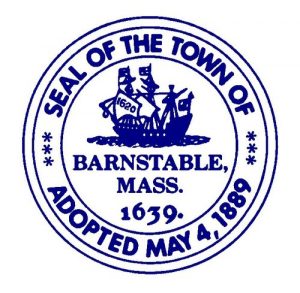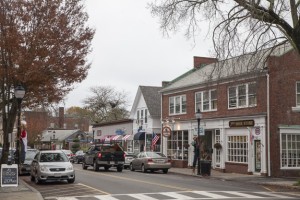
Gov. Healey at Housing Assistance Corporation on Cape Cod.
HYANNIS – Members of the Cape and Islands legislative delegation are applauding Governor Maura Healey’s new housing bond bill that will create 40,000 units and provide more tools for towns.
The $4.1 billion dollar record investment in housing includes 22,000 new homes for low-income households and 12,000 new homes for middle-income households, as well as money to rehabilitate about 25,000 homes.
The act also includes a local-option “Mansion Fee” on multi-million-dollar home sales to help support sustainable housing initiatives, said Barnstable/Dukes/Nantucket State Representative Dylan Fernandes.
Affordable housing on Cape Cod has posed a significant challenge as many older residents are on fixed incomes.
The Cape Cod Chamber of Commerce said it also throttles workforce capacity, with about half of all local workers commuting from off-Cape.
Cape and Islands State Senator Julian Cyr also highlighted that the bill relaxes requirements for Accessory Dwelling Units, opening them up as tools to help alleviate the Cape’s housing crisis.
The following is the full statement from the office of Gov. Maura Healey:
The Healey-Driscoll Administration today unveiled a $4 billion plan to jumpstart the production of homes and make housing more affordable across Massachusetts. The Affordable Homes Act, a comprehensive package of spending, policy and programmatic actions, represents the largest proposed investment in housing in the state’s history while simultaneously striking at the root causes of housing unaffordability and making progress on the state’s climate goals. Governor Maura Healey will be highlighting the package in Chelsea, Springfield and Pittsfield today.
This multi-pronged approach includes $4 billion in capital spending authorizations, 28 substantive policy changes or initiatives, three executive orders and two targeted tax credits. All are directed at reducing barriers to the production and preservation of housing, and giving communities the tools to develop more housing where they need it. The majority of the spending will have benefits for moderate- and low-income households.
In Massachusetts, an infusion of new homes is needed to lower costs, accommodate population growth and achieve a healthy vacancy rate. In combination with the housing development tax credits that were part of the tax relief package signed into law by Governor Healey on October 4, the initiatives in this plan will fund or enable the creation of more than 40,000 homes that otherwise would not be built, including 22,000 new homes for low-income households and 12,000 new homes for middle-income households. In addition, the Affordable Homes Act will preserve, rehabilitate or make resilience improvements to 12,000 homes for low-income households, support more than 11,000 moderate-income households, and fund accessibility improvements for 4,500 homes.
“The cost of housing is the biggest challenge facing the people of Massachusetts. We said from day one of our administration that we were going to prioritize building more housing to make it more affordable across the state,” said Governor Healey. “The Affordable Homes Act delivers on this promise by unlocking $4 billion to support the production, preservation and rehabilitation of more than 65,000 homes statewide. It’s the largest housing investment in Massachusetts history. Together, we’re going to make our state a place where people can afford to move to and stay to build their future.”
“As a former local official, I’ve seen firsthand how new housing can transform communities and help them flourish. But we only get those benefits when people can actually afford to live in these homes,” said Lieutenant Governor Driscoll. “The Affordable Homes Act is full of new tools for municipalities to help them implement the solutions that work best for the unique needs of their communities so that they can build consensus and build new homes.”
Recognizing the important role the state’s public housing portfolio plays in housing affordability, the Affordable Homes Act also provides significant investment into upgrading this essential asset. A total of $1.6 billion will provide for the repair, rehabilitation and modernization of the state’s more than 43,000 public housing units. This includes $150 million to begin “decarbonizing” public housing through the installation of heat pumps and electric appliances in 3,000 units and another $15 million for accessibility upgrades.
Another $200 million would be authorized for the Housing Innovations Fund to support alternative forms of rental housing for people experiencing homelessness, housing for seniors and veterans, and transitional units for persons recovering from substance abuse.
“Our public housing stock in the Commonwealth has lacked capital investments for decades,” said Executive Office of Housing and Livable Communities Secretary Ed Augustus. “The proposed investment by this administration meets the moment. It will create powerful ripples for decades to come to ensure that families and individuals live in communities they can take pride in. The push to spur housing production will also directly help many others across a wide range of incomes who feel they’ve been priced out here in Massachusetts.”
The Affordable Homes Act makes pivotal investments in green building and decarbonization that align with the administration’s climate and housing goals. In addition to helping “green” Massachusetts’ public housing stock, the bill includes $115 million to ensure new affordable housing developments meet increased standards while remaining economically viable. The bill also directs all the state’s housing investments to prioritize and incorporate the state’s climate and decarbonization goals.
New policy initiatives that would be available to communities include the local option of adopting a real estate transaction fee of 0.5 percent to 2 percent on the portion of a property sale over $1 million – or the county median home sale price. This fee–projected to affect fewer than 14 percent of all residential sales–would be paid by the seller of the property with the money to be used to fund affordable housing developments within the community. The Affordable Homes Act would also allow accessory dwelling units less than 900 square feet as of right throughout the state with the ability for communities to set some reasonable restrictions. It is estimated this change could create more than 8,000 accessory dwelling units over five years.
A total of $1.83 billion would be directed to housing production and preservation in Massachusetts. Highlights include:
$800 million for the Affordable Housing Trust Fund to provide resources to create or preserve affordable housing for households whose incomes are not more than 110 percent of area median income; includes up to $50 million for MassDreams to create first-time homebuyer opportunities for households in Disproportionately Impacted Communities.
$425 million for Housing Stabilization and Investment Fund to support preservation, new construction, and rehabilitation projects.
$175 million for HousingWorks Infrastructure Program to fund municipal infrastructure projects to encourage denser housing development.
$100 million for CommonWealth Builder to spur construction of affordable homeownership opportunities.
$100 million for Mixed-Income Housing to support middle-income housing production.
$50 million for the Momentum Fund – a new pioneering initiative designed to leverage state resources to support large scale, mixed-income multifamily development.
The Affordable Homes Act would also make the Community Investment Tax Credit Program permanent and increase it from $12 million to $15 million per year to support the work of Community Development Corporations. A new Homeownership Tax Credit would be created to spur production of homes affordable to first-time homebuyers earning not more than 120 percent of area median income.
As part of this package, Governor Healey will also sign three executive orders creating a Housing Advisory Council to develop a statewide housing plan, creating an Unlocking Housing Production Commission to develop recommendations for streamlining housing production, and directing state agencies to develop an expanded inventory of state-owned land suitable for housing.
























